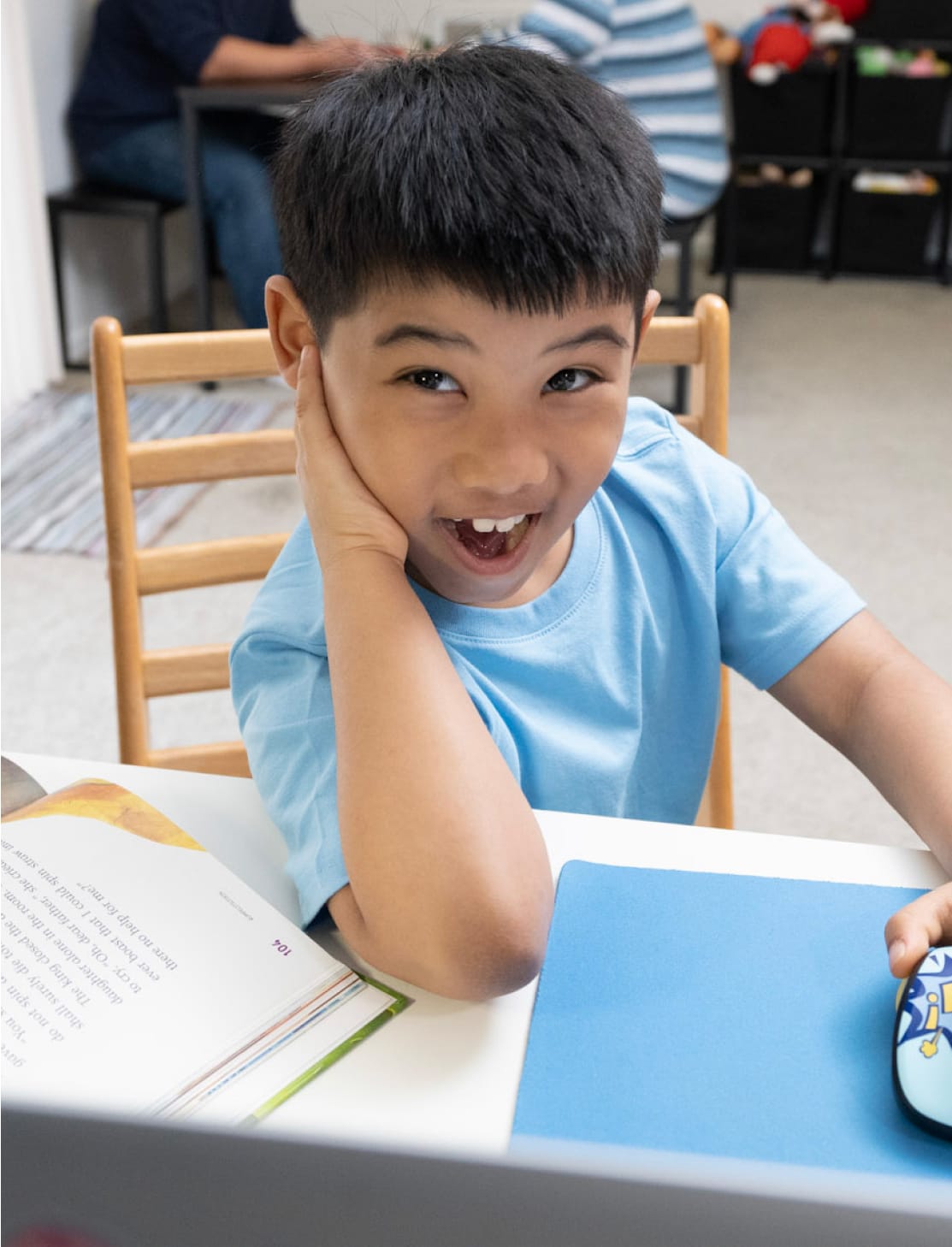Variables to Consider in Deciding On Private College: Comprehending What Each Establishment Has to Offer for Your Child's Growth
Picking a personal school for a youngster entails mindful consideration of multiple elements. Moms and dads should assess the scholastic curriculum and mentor viewpoints of various establishments. They ought to also check out extracurricular tasks that might improve their child's experience. Additionally, comprehending the institution's society and values is crucial for positioning with household ideas. As economic ramifications play a significant role, it is crucial to weigh tuition expenses versus readily available scholarships. Exactly how do these elements form a child's growth path?
Academic Educational Program and Training Approach
When selecting a private college, comprehending the academic educational program and training philosophy is crucial, as these aspects greatly affect a youngster's instructional experience. Parents must investigate the institution's technique to teaching and the subjects supplied, as this can vary significantly amongst establishments. Some schools may adopt a typical curriculum focused on core subjects, while others could highlight project-based understanding or interdisciplinary research studies.
Additionally, the teaching viewpoint can form classroom dynamics and trainee involvement. Colleges that prioritize a student-centered approach commonly foster vital thinking and collaboration, while those with an extra organized atmosphere might concentrate on discipline and fundamental abilities.
After-school Activities and Enrichment Programs

Relevance of Diverse Activities
While academic quality is frequently focused on secretive schools, the value of diverse activities, including extracurricular activities and enrichment programs, can not be overstated. These activities play a crucial duty in a child's alternative development, providing chances for creative thinking, critical thinking, and teamwork. Involving in various pursuits allows trainees to explore their passions, uncover brand-new interests, and establish important life abilities, such as time management and self-control. In addition, diverse activities can cultivate a sense of belonging and area, improving the overall institution experience. By joining clubs, sports, and imaginative undertakings, pupils not just enhance their education and learning yet also create memorable experiences that add to their personal development. Diverse activities are important to promoting all-around individuals.
Effect On Social Abilities
Just how do extracurricular tasks and enrichment programs influence a youngster's social abilities? These programs offer important possibilities for kids to connect with peers beyond the conventional classroom setting. Engaging in sports, arts, or clubs cultivates communication, problem, and synergy resolution. Kids find out to browse varied social environments, boosting their capacity to create relationships and establish empathy. Furthermore, taking part in numerous tasks urges self-confidence, as children handle brand-new challenges and responsibilities. As they work together on jobs or complete in teams, they additionally gain valuable experience in management and collaboration. Eventually, a rich selection of extracurricular offerings contributes considerably to a youngster's social growth, preparing them for future social interactions in both scholastic and personal contexts.
Institution Society and Worths
Understanding the college society and worths is essential for parents reviewing personal education and learning alternatives, as these aspects substantially affect a youngster's general experience. Each organization embodies unique philosophies, traditions, and social norms that shape pupils' lives. For instance, an institution that highlights inclusivity may cultivate an encouraging environment, encouraging kids to establish compassion and regard for diverse backgrounds. Conversely, establishments that prioritize academic excellence may create a competitive environment, motivating pupils to intend for high achievement.
In addition, the alignment of a college's worths with a family's beliefs can enhance a child's sense of belonging, reinforcing favorable habits and mindsets. Moms and dads ought to explore the school's mission declaration, examine its disciplinary plans, and observe student interactions to gauge the fundamental society. Inevitably, a school's culture and worths considerably influence not just scholastic success however also individual growth, equipping kids with essential life skills for their future.
Course Dimension and Student-Teacher Ratio
Course size and student-teacher ratio play a crucial duty in the academic experience offered by independent schools. Smaller courses often cause boosted private focus, cultivating much better pupil involvement and understanding. Research study suggests that these elements can considerably affect finding out results, making them crucial factors to consider for parents.
Benefits of Smaller Courses
Smaller course dimensions significantly improve the educational experience by promoting much more individualized interest from educators. In these settings, teachers can tailor their instruction to meet specific student needs, enabling a deeper understanding of the product. With less students, instructors can a lot more easily identify those who might be struggling and provide prompt support. This close communication can cultivate stronger connections between students and teachers, creating a helpful atmosphere conducive to finding out. Furthermore, smaller sized courses typically advertise greater involvement, as pupils may feel extra comfortable voicing their inquiries and thoughts. This vibrant motivates collaborative knowing and improves general classroom engagement. Inevitably, the benefits of smaller sized classes contribute extremely to a well-shaped academic experience that prioritizes student advancement and growth.
Effect On Knowing Outcomes
The advantages of smaller classes prolong beyond tailored focus, substantially affecting finding out outcomes. Research study continually reveals that a lower student-teacher proportion fosters improved interaction, enabling teachers to customize guideline to individual demands. This setting encourages energetic engagement, crucial reasoning, and much deeper understanding of the material. In smaller setups, teachers can better recognize and deal with learning spaces, bring about improved academic efficiency. Grade School Peoria. In addition, trainees often feel more comfy sharing their ideas and asking questions, which can further enhance the discovering experience. Conversely, bigger course sizes may restrict communication and responses, possibly preventing trainee growth. Because of this, when examining independent schools, family members should consider course dimension and student-teacher ratios as significant variables influencing their child's instructional success
Neighborhood Involvement and Adult Participation
Exactly how can area involvement and parental participation boost the instructional experience in personal colleges? These elements play an essential function in improving the learning atmosphere. When parents proactively join college activities, they foster a sense of belonging and support Grade School amongst trainees. This involvement can take numerous types, such as volunteering for occasions, going to meetings, or joining committees, which not only enhances the institution community but also improves interaction between households and instructors.
Neighborhood interaction extends this assistance by connecting the college with local organizations, services, and cultural institutions (Grade School Peoria). Such collaborations supply trainees with one-of-a-kind learning chances, consisting of workshops and internships, which add to their total development. Furthermore, schools that prioritize these links typically produce a more comprehensive ambience, permitting varied perspectives to be shared. Ultimately, area involvement and parental participation offer to produce a helpful and collaborative setting that adds favorably to students' scholastic and social success
Financial Considerations and Scholarships
Navigating the financial landscape of independent schools can be a complicated procedure for families. Tuition costs vary significantly, often affected by aspects such as place, facilities, and the institution's online reputation. Family members should examine their economic situation, taking into consideration not only tuition yet likewise additional expenditures like uniforms, charges, and after-school activities.
Many independent schools provide scholarship programs focused on drawing in varied pupil populations - Grade School. These scholarships can make and minimize economic worries top quality education and learning easily accessible to family members with differing income degrees. It is vital for parents to ask about the schedule of merit-based and need-based scholarships and recognize the application processes included
In addition, some institutions provide versatile layaway plan that can alleviate instant economic pressures. By examining all economic facets and checking out scholarship chances, families can make enlightened decisions that line up with their monetary restrictions and educational goals.
Frequently Asked Inquiries
How Do Institutions Assistance Students With Discovering Disabilities?
Schools sustain students with discovering disabilities through personalized education and learning plans, specialized mentor techniques, and additional sources. They typically give customized interventions, access to sustain team, and inclusive environments to foster scholastic and emotional growth.
What Is the College's Strategy to Discipline and Actions Monitoring?
The college's approach to discipline and behavior administration highlights favorable support, clear assumptions, and corrective methods. Personnel actively involve students in conversations concerning habits, fostering a supportive setting that encourages personal duty and accountability.
Just How Do Colleges Take Care Of Pupil Changes, Such as Relocating to Greater Qualities?
Schools commonly provide organized support throughout student adjustments, consisting of alignment programs, mentorship possibilities, and customized academic preparation. These procedures intend to alleviate anxiety, advertise adjustment, and assurance pupils are gotten ready for the obstacles of higher grades.
What Are the Institution's Plans on Innovation Use in the Class?

Just How Do Institutions Analyze Trainee Development and Provide Responses to Moms And Dads?
Schools analyze pupil progress through regular assessments, including examinations, projects, and class engagement. Responses is provided to moms and dads by means of progress report, parent-teacher conferences, and online websites, making sure constant interaction concerning each youngster's academic growth.
